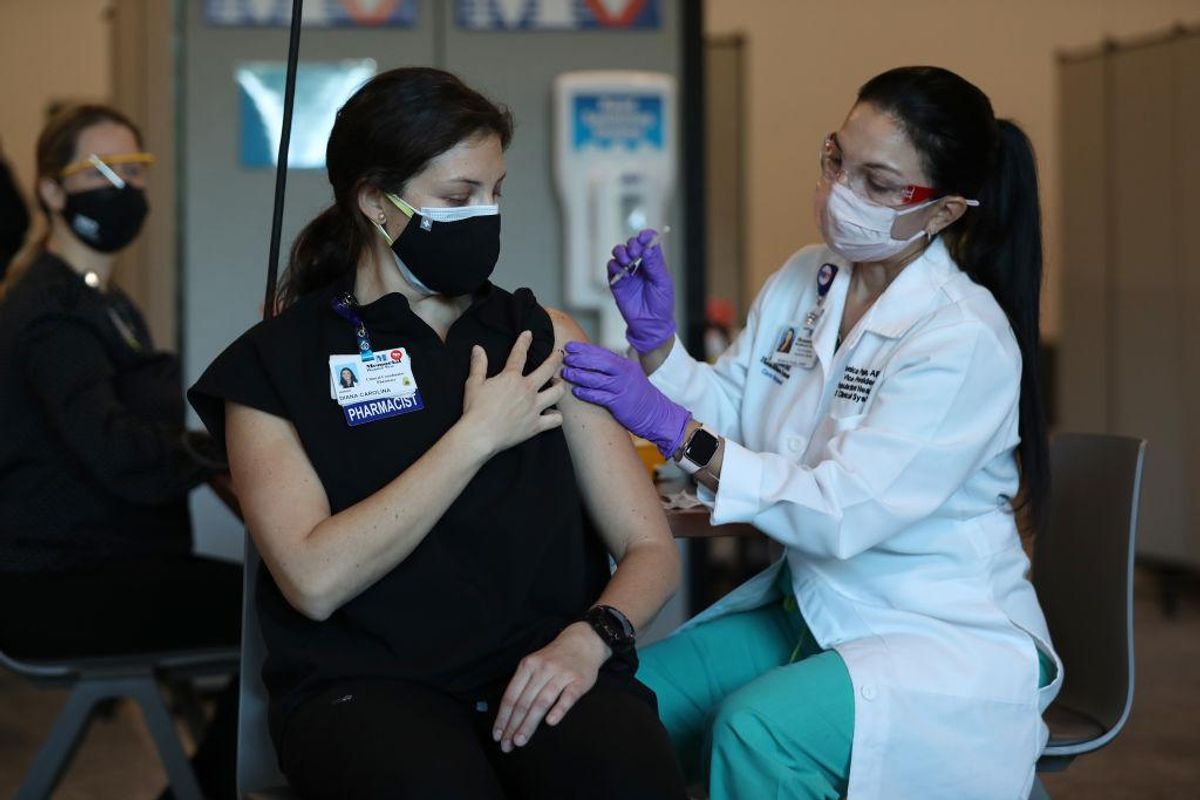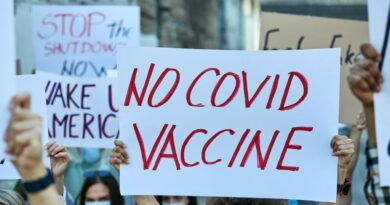Large numbers of health care and frontline workers are refusing to get the coronavirus vaccine

Despite having been prioritized as the first recipients of the coronavirus vaccine, a large number of health care and frontline workers are passing on the vaccine. Early reports from across the country show that health care and frontline workers are refusing to get the COVID-19 vaccine.
In Ohio, 60% of nursing home employees decided not to take the coronavirus vaccine. Last week, Gov. Mike DeWine (R) reacted to the low participation numbers by saying, “We aren’t going to make them but we wish they had a higher compliance.” He added that he was “troubled” by how many nursing home workers rejected the vaccine.
DeWine warned frontline workers that they soon would no longer be in front of the line, “Our message today is: The train may not be coming back for awhile. We’re going to make it available to everyone eventually, but this is the opportunity for you, and you should really think about getting it.”
Dr. Joseph Varon, chief of staff at United Memorial Medical Center in Houston, is frustrated that over half of the nurses in his unit will refuse to get the vaccine.
“Yesterday I had a — not a fight, but I had a friendly argument with more than 50% of my nurses in my unit telling me that they would not get the vaccine,” he told NPR’s “Morning Edition.”
“Some of those nurses have had family members admitted to the hospital, gravely ill with COVID-19,” NPR reported. “But he said some nurses and hospital staff members — many of whom are Latinx or Black — are skeptical it will work and are worried about unfounded side effects.”
In California, an estimated 50% of frontline workers in Riverside County turned down the COVID-19 vaccine, Public Health Director Kim Saruwatari told the Los Angeles Times.
“At St. Elizabeth Community Hospital in Tehama County, fewer than half of the 700 hospital workers eligible for the vaccine were willing to take the shot when it was first offered. At Providence Holy Cross Medical Center in Mission Hills, one in five frontline nurses and doctors have declined the shot,” the LA Times reported. “Roughly 20% to 40% of L.A. County’s frontline workers who were offered the vaccine did the same, according to county public health officials.”
Dr. Nikhila Juvvadi, the chief clinical officer at Chicago’s Loretto Hospital, surveyed the hospital staff right before the coronavirus vaccine came out, and 40% of the employees said they would not get vaccinated, according to NPR.
In an early December survey of New York Fire Department members, approximately 55% of uniformed firefighters said they would opt to not get the shot, according to WNBC-TV.
A survey by the Kaiser Family Foundation published on Dec. 15 found that 29% of those who work in a health care delivery setting probably would not or definitely would not get the shot. The poll also found that 33% of essential workers would pass. Overall, 27% of Americans are “vaccine-hesitant.”
There is a stark divide among Americans who are willing to get vaccinated depending on their political affiliation. According to the survey, 86% of Democrats say that they will definitely or probably get the coronavirus vaccine, compared to 56% of Republicans who said the same.
According to the KFF, the top concerns about being reluctant to get the coronavirus vaccine are:
- Possible side effects (59%)
- Lack of trust in the government to ensure the vaccines’ safety and effectiveness (55%)
- Concerns that the vaccine is too new (53%)
- Concerns over the role of politics in the development process (51%)
Sheena Bumpas, a certified nursing assistant at a home in Oklahoma, told the New York Times that she was reluctant to get the COVID-19 vaccine because “I don’t want to be a guinea pig.”
April Lu, a 31-year-old nurse at Providence Holy Cross Medical Center in California, refused to take the vaccine because she is concerned that it is might not be safe for pregnant women, and she is six months pregnant.
“I’m choosing the risk — the risk of having COVID, or the risk of the unknown of the vaccine,” Lu told the Los Angeles Times. “I think I’m choosing the risk of COVID. I can control that and prevent it a little by wearing masks, although not 100% for sure.”
Last week, Dr. Anthony Fauci noted that coronavirus vaccines could become mandatory in order to attend school or travel internationally.
*** This article has been archived for your research. The original version from TheBlaze can be found here ***


